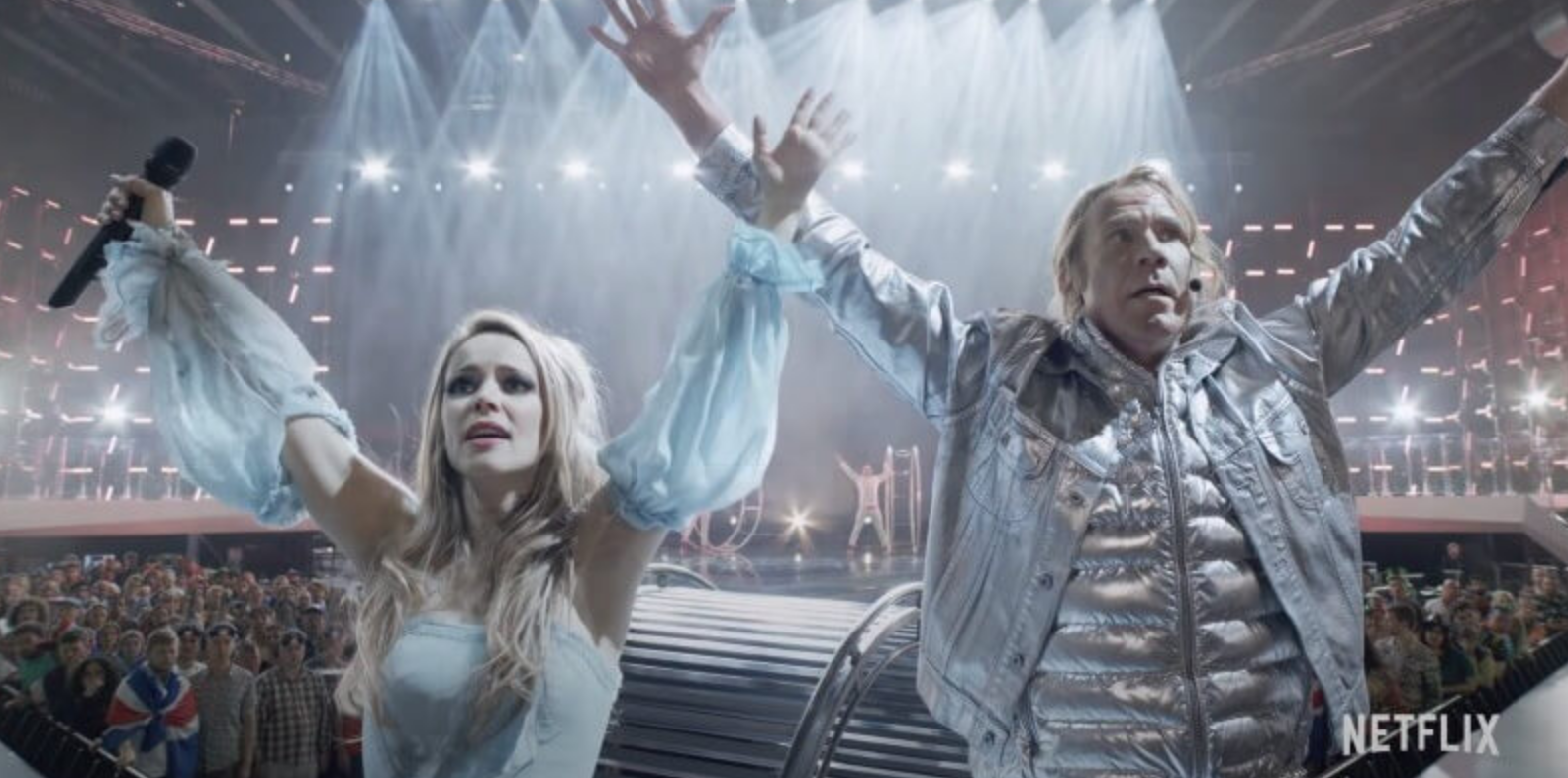
I watched the new Rachel McAdams and Will Ferrell movie on Netflix this weekend, Eurovision Song Contest: The Story of Fire Saga. And then I saw some comments on social media and even online reviews about how unfunny it was. They struck me as entirely missing the point, since I didn’t view it as a comedy. Instead, it struck me as a light-hearted but loving embrace of the 64 year old cultural phenomenon that Eurovision has become. And so, without an understanding of that history, of what the song contest was established to help accomplish, and how it has or has not actually accomplish those goals, sure, the uninitiated viewer may feel a little lost, much like someone utterly unfamiliar with NASCAR (yes, they do exist out there) trying to make sense of why Ferrell’s 2006 Talladega Nights: The Ballad of Ricky Bobby struck others as so hilarious.
This isn’t the place to go into detail on the history of Eurovision (broadcast around the world each May, after each national competition over who will represent them has been settled, though it was cancelled in 2020 due to COVID-19 concerns); but watching the annual competition not only as a sometimes over-the-top extravaganza but also as an exploration of modern economics and geopolitics — Will each country’s song be sung in English or each nation’s native language? Will those voting in each country give their coveted 12 points to their traditional allies, regardless the quality of their song that year? What sort of performer, even person, has each country agreed to represent them this year? — makes it far more interesting. For this modern exercise in developing and showcasing a shared European identity has always been about far more than the songs, many of which have come to exhibit a sort of grand, operative pop quality over the years, with each no doubt aiming to be that upcoming summer’s club hit across Europe. (Hence the annual calculation: do we sing in the more widely accessible English or dare we just speak our own language on the international stage…?).
It’s into this mix that the film’s protagonists step — this year’s unlikely Icelandic duo, Fire Saga. Played by Ferrell and McAdams, they’re of a type we’ve often seen before in a Will Ferrell movie: the underdogs whom even the locals don’t support. And, as they journey from their tiny northern coastal town of Husavik to the competition in Edinburgh, there are plenty of winks to those familiar with the song contest, from a quick reference to the U.K. often not doing so well to the so-called eastern bloc countries voting similarly, and even the extended cameos from a variety of recent Eurovision performers and winners, such as at the so-called song along at a party held the night before the competition (when the movie’s stars artfully step back and just let the singers sing).
But without the referent of the competition itself, let alone its history and implications (something insiders know as soon as they see ABBA’s 1974 performance of “Waterloo” at the film’s start), it likely just strikes viewers as a series of gags that don’t really hit the mark — for, much like McAdams’s character, Sigrit, first stepping on that huge Eurovision stage for a rehearsal, they don’t know where the mark is. But for those who, like myself, once sat in a small hotel’s lobby in Thessaloniki, early one evening when Greece’s own Sakis Rouvas came out to perform “This is Our Night” in the Eurovision final, after which a Greek couple who were enjoying some wine while also watching the small television spontaneously applauded his performance…, well, for such a viewer the movie is rather endearing but also effective.
So give it a try, but remember: its not so simple as a parody. And, just as with Ricky Bobby, you need to have some grasp of the referent to understand what’s gong on. For nothing stands alone; that’s just how meaning works.
